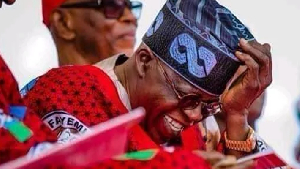Business News of Monday, 28 July 2025
Source: www.punchng.com
States insist on right to slash tariffs, tackle FG
Enugu and other states have disagreed with claims by the Nigerian Electricity Regulatory Commission that sub-national entities cannot fix electricity tariffs because they do not generate and transmit electricity.
The Special Adviser to the Enugu Governor on Power, Joe Aneke, said states have the power to design tariffs as far as distribution is concerned.
Speaking during a webinar hosted by the Lagos State Commissioner for Energy and Mineral Resources, Biodun Ogunleye, on Saturday, Aneke said the new tariff by the Enugu Electricity Regulatory Commission did not tamper with the costs of generation and transmission, saying it based its calculations on distribution only.
The Forum of Commissioners for Power and Energy in Nigeria, said in a recent statement that NERC does not have overriding regulatory authority over electricity distribution and tariff setting, noting that the fifth constitutional alteration and the 2023 Act give states exclusive jurisdiction over electricity distribution, whether connected to the national grid or not, emphasising the power of states to adjust tariffs.
In its reaction to the controversies generated by the Enugu Electricity Regulatory Commission’s decision to slash Band A tariff from N209 per kilowatt-hour to N160/kWh from August, NERC said states do not have jurisdiction over the national grid and over electric power stations established under federal laws or operating under licences it issued.
It cautioned, “As states do not have jurisdiction over the national grid and over electric power stations established under federal laws/operating under licences issued by the commission; they must holistically incorporate the wholesale costs of grid supply to their states without any qualification or deviation in their design of tariffs for end-use customers in order not to distort the dynamics of the market or be prepared to make a policy intervention by way a subsidy for any deviation in the tariff structure that distorts the wholesale generation, transmission and legacy financing costs in the Nigeria Electricity Supply Industry.”
NERC said no institution would take decisions that expose the national grid and wholesale electricity market to a financial crisis in contravention of express powers granted to them by the constitution.
The Association of Power Generation Companies and the Association of Nigerian Electricity Distributors shared the same sentiment, stressing that states cannot dictate the cost of power they do not generate.
Speaking, the Enugu governor’s Special Adviser on Power, Aneke, clarified that the EERC’s new tariff would not distort the electricity market because it did not affect generation and transmission.
“It’s possible to reduce tariffs, and on the other hand, it’s equally possible to increase them, but these are subject to facts, figures, and numbers. Why am I saying so? Recall that the subnationals do not regulate generation. And in this tariff determination, which Enugu did, the cost of generation was not tampered with at all. It still stays as it is because we know we don’t regulate generation, we don’t regulate transmission. That is the work of NERC. None of those costs were touched.
“So, why is it not possible for state regulatory commissions to fix tariffs, having been given the law, having the power, and having the numbers, and having jaw-jawed with the subcos, with their figures on the table? Let me go to the granular.
“Everybody here appreciates the fact that there are certain variables and costs that are used or considered before tariffs are determined. If these figures are laid bare, you see that some are not realistic, just to avoid using certain words, some cannot be sustained. The argument of the presentation cannot be sustained,” Aneke said.
Giving an example, he said MainPower claimed a sum of N9bn for recovery, but the figure was not up to that.
“For instance, a lump sum that was presented at about N9bn. When we got into the nitty-gritty, we looked at the facts, the figures, the numbers, the customer numbers, the so-called lifeline. We have now discovered that what they presented wasn’t correct. They tacitly understood that and accepted,” he said.
Aneke stressed that the EERC is interested in protecting both the consumers and the investors. “We want to make sure that the business is sustained, you make profits, make returns on your investment, but it gives the customer what is fair pricing.
“To the Gencos, we don’t regulate gas; we know it is for NERC. This was not part of what we considered in the determination of our tariff. I’ve given you just an example. If you give a lump sum of N9bn like we have here, and we eventually got it down to N7.5bn, and you tacitly understood and accepted that it is what it should be, why wouldn’t it come down? How can you be putting N9bn for recovery when the actual cost, with all the profit and everything considered, is about N7.5bn? Can’t we be sincere for once?” he asked.
He added that it is possible to have the tariff reduced by focusing on just the cost of distribution. “If every subnational gets to look into the affairs of the subcos within their system, with the figures and data projected and the customer base to determine the exact sum, they can now do the correct tariffing,” Aneke argued.
EERC meets MainPower
Aneke disclosed that MainPower wrote a petition to the EERC rejecting the tariff cut, saying the commission would meet with the Disco today (Monday).
“MainPower sent a petition; they said that they don’t accept it. And our law in Enugu has the provision to consider petitions, to consider your rejection, and to consider your concerns. The commission in Enugu will independently meet with them as from Monday and look at what they are presenting, if it’s different from what they had earlier presented.
“The commission didn’t just manufacture numbers. It was the data they supplied that was verified, and we found out that they are not absolutely correct. For instance, in accommodation, you said you’re occupying about seven floors in your office apartment, and the cost is about N50m.
“Eventual verification showed that you only occupy one floor, but we still left the provision where they made a plea that they would go into two floors. We said, ’ Okay, what’s the cost of the two floors?’ It’s about N15m. Why are we now using the figure of N50m instead of N15m?” he queried.
NDPHC disagrees
Speaking, the Managing Director/Chief Executive Officer of the Niger Delta Power Holding Company, Jennifer Adighije, disagreed with Aneke, saying a tariff slash will distort the power sector.
“On the possibility of tariff reduction, unfortunately, it’s not really our call as a power generation company that was incorporated under federal laws and is being regulated by the federal regulator. And that’s because the output of our generation plants is evacuated through the national grid, which is still regulated by the federal regulator.
“And so, importation of power from the national grid is subject to the full regulation of the NERC. With respect to tariff adjustments or tariff provisions, for now, according to the law, no state currently has the power to determine the cost of electricity, for instance, from the NDPHC source, because all our power generating plants are grid-tied and synchronised to the grid. So, no state is able to regulate our cost of electricity for now.
“The states can only do this when they’ve been able to provide the end-to-end value chain, which means when they’ve been able to produce their own electricity, they’re able to wheel their own electricity to the end users. Only in that circumstance can the states regulate the cost of electricity,” the NDPHC boss said.
However, the Lagos energy commissioner countered Adighije on her submission that states cannot decide the cost of electricity.
“For me, if the foreign exchange moves in a particular direction, we can get lower tariffs. There are things we can do to get lower tariffs. I may be wrong, but I don’t completely agree with you, Madam Jennifer. I think there are provisions in MYTO for market participants to also make submissions for tariff adjustments.
“So, if we can make submissions for tariffs to go up, what stops us from making submissions for tariffs to come down?” Ogunleye asked.












